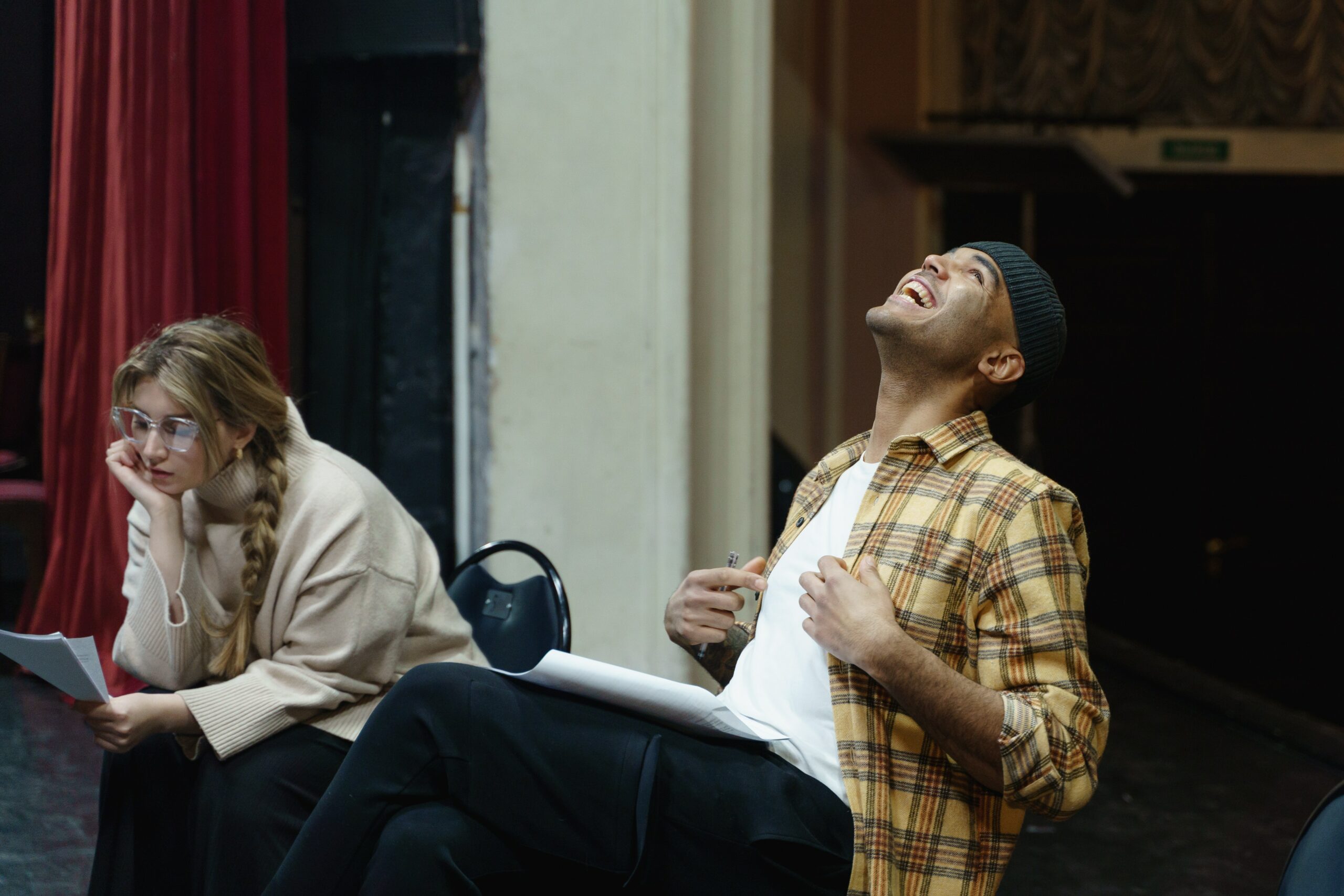Comedy or drama? Which do you prefer?
Would you rather play a parent who just lost a child in a car accident, or pretend you didn’t forget the name of the person you hooked up with last night? You more one hour drama or half hour sitcom? Extreme close-up or multi-cam? If you had to pick one scene to put up in front of an agent or manager, would you go with a comedy? Or do you start prepping something dark and dramatic?
If you went with the dramatic choice, you’re not alone.
I would say that the vast majority of people I’ve coached over the past few years feel more comfortable in drama-land.
And I get it. Comedy is hard. But here’s the thing: we get better when we work harder.
I firmly believe that if you can do comedy, you can do drama. And if you can do drama… you can do drama.
Think about it. How many times have you seen a brilliant comedic performer absolutely blow you away with a dramatic turn? Think Jim Carrey in The Truman Show. Steve Carrell in Little Miss Sunshine. Kristen Wiig in The Skeleton Twins. The list goes on and on.
We’re constantly surprised when a comedic performer makes us cry. But we probably shouldn’t be. Because I firmly believe that if you can do comedy, you can do drama. To be successful in comedy, you need all the same skills you need in drama. Plus, you have to, y’know… be funny.
And that’s the one thing that I think people often miss when they’re prepping a comedic audition. They didn’t find the funny.
Tell me if this has ever happened to you. You prep a comedy audition, and go put yourself on tape. After sitting in story, loading up on unstated experiences and test-driving your physical life, you felt ready to nail the audition. And you feel like you did when you taped it. But then, after reviewing the video, there’s just one problem: You weren’t funny!
And if you’re auditioning for comedy, that’s a problem.
I always tell my students that the prep should start with reading and understanding the scene. What I call it the spectator pass. Read through the scene as though you were watching the show. Or as if a friend of yours wrote it, and wants notes. In other words, don’t immediately start focusing on your lines. Make sure you see the big picture. Understand what the scene is actually about.
But for comedy, we have to go one step further. Once we understand what the scene is about, we should go through it again with what I call the comedy pass.
Where are the jokes? What are the funny moments, and why are they funny? What is the writer’s sense of humor? And how can we make sure our audition experience is in line with it?
Sometimes this is obvious, but sometimes we might have to dig a little bit to unlock the humor. This happened to me just the other day. I was auditioning for a dark comedy, where the humor wasn’t explicitly obvious on the page. And when I watched my tape, it didn’t even feel like a comedy! I’d put a drama audition on tape by mistake.
In order to unlock the funny, I had to take a step back and figure out why the writer found this situation, these characters, amusing. And once I understood that, I could go back in and tweak my choices to make sure they landed more in line with the tone of the show.
In a comedy audition, jumping right into running lines without a comedy pass is just like rehearsing a hospital drama without first looking up the medical jargon. You’re probably not going to be successful until you understand what you’re talking about. And why.
So do yourself a favor. The next time you get a comedy audition, after you read through it once or twice, ask yourself one very simple question.
“Why is this funny?”
And, until you can answer that, you’re probably not ready to start prepping the audition.




